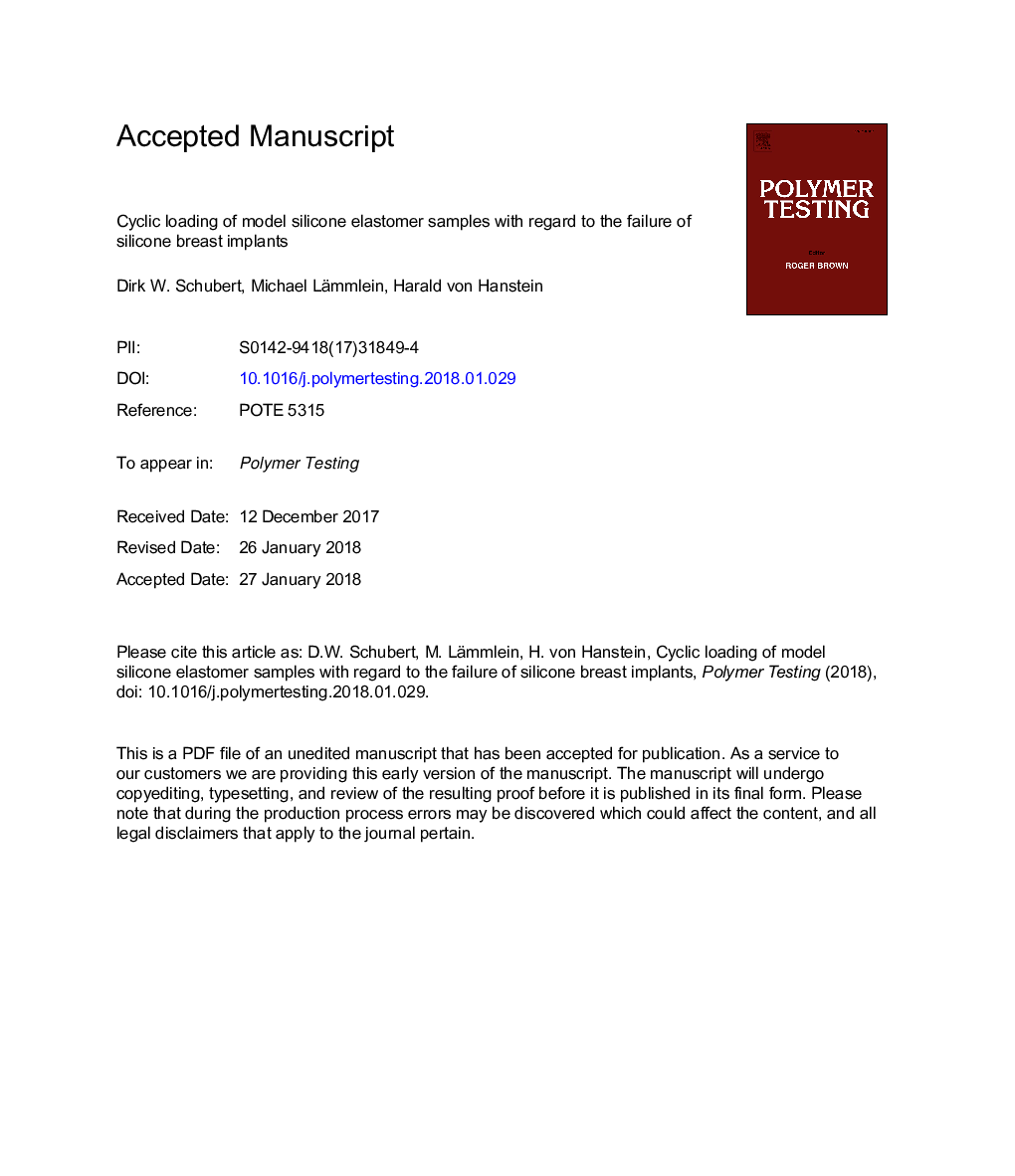| Article ID | Journal | Published Year | Pages | File Type |
|---|---|---|---|---|
| 7825352 | Polymer Testing | 2018 | 12 Pages |
Abstract
It is estimated that 15.000 to 20.000 breast augmentations are performed annually in Germany and several million worldwide. To obtain better knowledge of the reason for and the time of a possible failure of the implant shell, it is important to acquire information regarding the stability and durability of the material used and the associated failure criteria. The mechanical properties of silicone elastomers have, therefore, been investigated with regard to breast implants. Sample strips of the elastomer of various thicknesses were prepared and exposed to a cyclic bending load for a number of load cycles. Tensile specimens were punched out according to a defined pattern from the preloaded sample strips and tested with regard to their tensile properties, particularly the influence of cyclic loading on the stress at break. However, as quality of a silicone implant depends, not only on the strength of the material, but also on the spatial variation in the mechanical properties the quality of the silicone samples was also assessed in terms of the characteristic stress at break and the Weibull modulus, applying Weibull statistics to the tensile test results. The study revealed that the characteristic stress at break remained constant with increasing number of load cycles, but that the Weibull modulus decreased exponentially during the first 10.000 cycles to a critical level.
Related Topics
Physical Sciences and Engineering
Chemistry
Organic Chemistry
Authors
Dirk W. Schubert, Michael Lämmlein, Harald von Hanstein,
